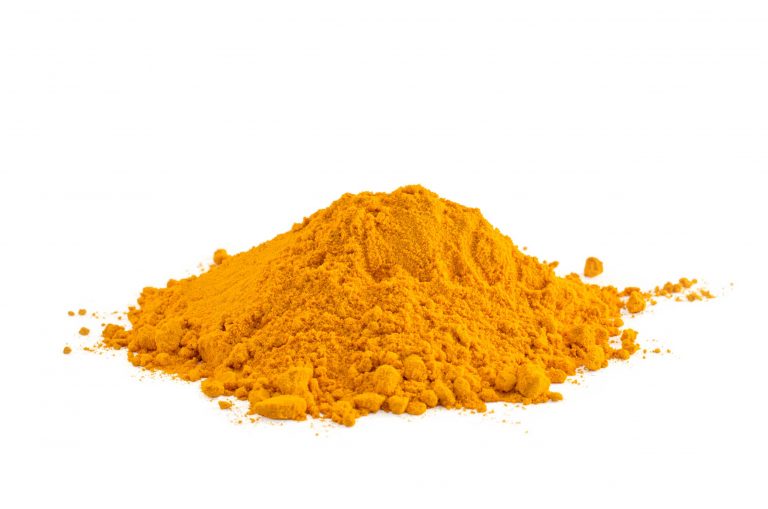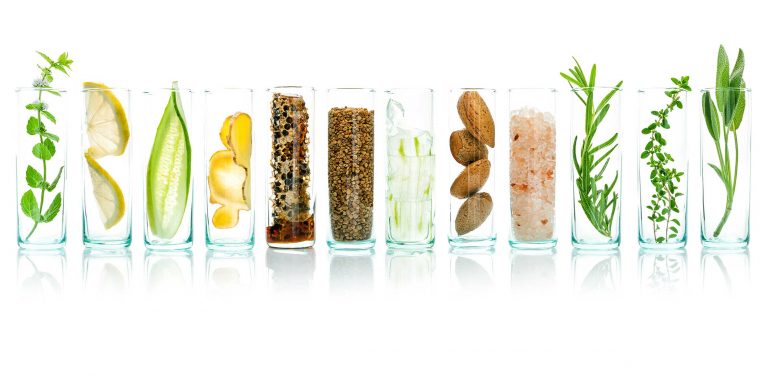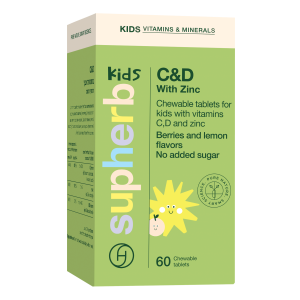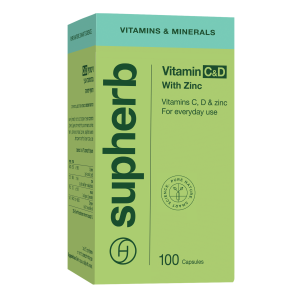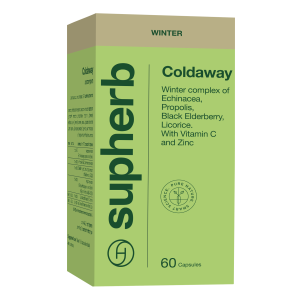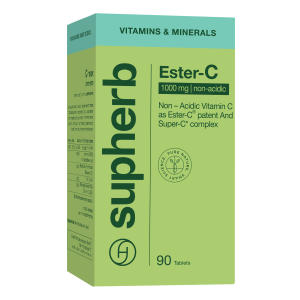Reinforcing the Body for Winter: Vitamin C, Vitamin D and Zinc
- A cold, coughing and throat pain are symptoms more common during wintertime, as we stay in more closed and unventilated spaces, and the temperature gaps also make us be more vulnerable for winter viruses and cold.
- Vitamin C and D are important for our natural defense system, and we should take them all year around, especially during the winter.
- Zinc is a very important mineral for our general health and serves many important roles in the immune system. According to the World Health Organization, 20% of the population suffers from zinc deficiency.

Winter is coming and with it is that pestering cold, runny nose and troublesome cough. There are nutritional components that are important for strengthening the body, especially in cold seasons. If you’re looking for a way to reinforce your natural defense, you should get to know these components.
Here are this season’s stars!
When talking winter, we immediately think about the inevitable cold. This is the time to make sure and reinforce our natural defense. Many people look for vitamins for winter when the cold has already started, a better way – especially for those who tend to catch it often – would be to take them as reinforcing dietary supplements. There are three especially important supplements that were discovered to be contributing to the body’s natural defense, these are of course vitamin C, vitamin D and zinc.
Vitamin C: the more the better.
Vitamin C is a strong antioxidant that protects the body from free radicals, can be naturally found in fresh fruits and vegetables, especially red and yellow peppers, guava and citrus. Vitamin C is very delicate and gets ruined by heat, so even vegetables rich in it lose their vitamin C value once their cooked, like broccoli. Since vitamin C is a solvable vitamin and the body doesn’t hold any of its reserves, it’s important that our diet will contain enough of it on a daily basis. If you don’t currently eat enough fresh fruits and vegetables, you should start. Additionally, you can also consume vitamin C as a supplement, making sure you’re not deficient.
Vitamin D: did you know it’s important for the immune system?
Some of you may be surprised to learn that vitamin D has to do with proper immune system functioning: “A vitamin D deficiency has been linked in epidemiological observations with a negative effect on containment and morbidity of respiratory infections,” according to the Ministry of Health that encourages the public to maintain a proper level of vitamin D and recommends taking it as a supplement on a daily basis. Vitamin D supplement is also recommended for babies and kids, as well as adults.
Less sun, less vitamin D
Vitamin D is a special vitamin, since our body can produce some of its derivatives on its own. The skin cells can turn cholesterol in the skin into vitamin D when directly exposed to sunlight. The derivative created in the skin is inactive and goes through another process in the body to make it active. We’re not exposed to sunlight as much during winter, which is why there’s a higher chance of a deficit. There’s an increased risk of vitamin D deficiency in people with darker skin, since the melanin blocks most of the sunlight, interfering with its production. Since there are not a lot of sources for vitamin D in food and reduced sunlight exposure, you should consume it as a supplement.
Does your supplement contain the active form?
If you’re looking for a vitamin D supplement, you should take a look at the ingredients and make sure it contains vitamin D3, which is its active form. There’s another important thing you have to know, vitamin D belongs to the fat solvent family of vitamins, so adding fat contributes to its absorption. Another way of consuming it is with fatty foods or simply choose a vitamin D supplement that contains MCT additive – a fatty acid that improves absorption, so you can take it at any time of the day.
Zinc: why is it important?
Zinc is a mineral that takes part in dozens of biological processes in the body. It’s required for the functioning of the immune system, part of the cell division action and essential for the proper functioning of the hormonal system. Research have found that zinc helps recovery and accelerates recuperation, mostly in old people. A low level of zinc in the body has to do with vulnerability to viruses.
We can’t always know we’re deficient
According to the World Health Organization, a quarter of the population suffers zinc deficiency. Since zinc is an inner-cell mineral it’s hard to identify its deficiency via a blood test. Great resources for zinc in food are pumpkin and sunflower seeds, whole wheat, legumes, meat, chicken and fish. Zinc deficiency can be caused due to malnourishment, use of certain medications or increased alcohol intake. You can take zinc as a dietary supplement separately, or part of a formula. The important thing to know when looking for a zinc supplement is that consuming it for a long period of time may cause copper deficiency. Always check the zinc supplement’s component list and make sure it also contains copper.
Ready for the winter?
After having introduced the three starts of the season: vitamin C, vitamin D and zinc, we know how important it is for our body to have them, especially now, so we can reinforce and improve our natural defense. Other than improving our nutritional and lifestyle habits, you can consume a supplement that contains vitamins C + D with zinc for a dietary supplement.
Stay healthy!




